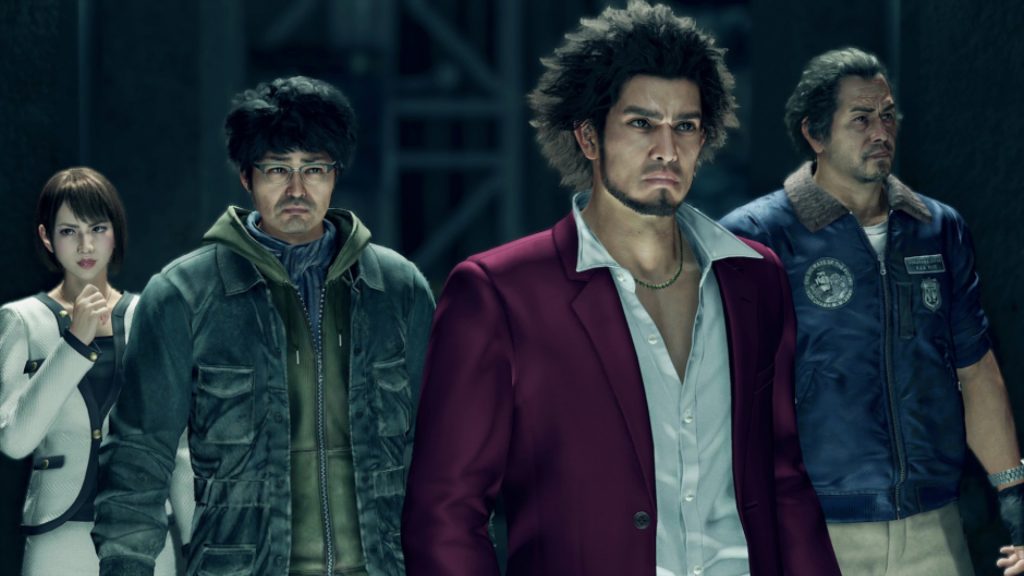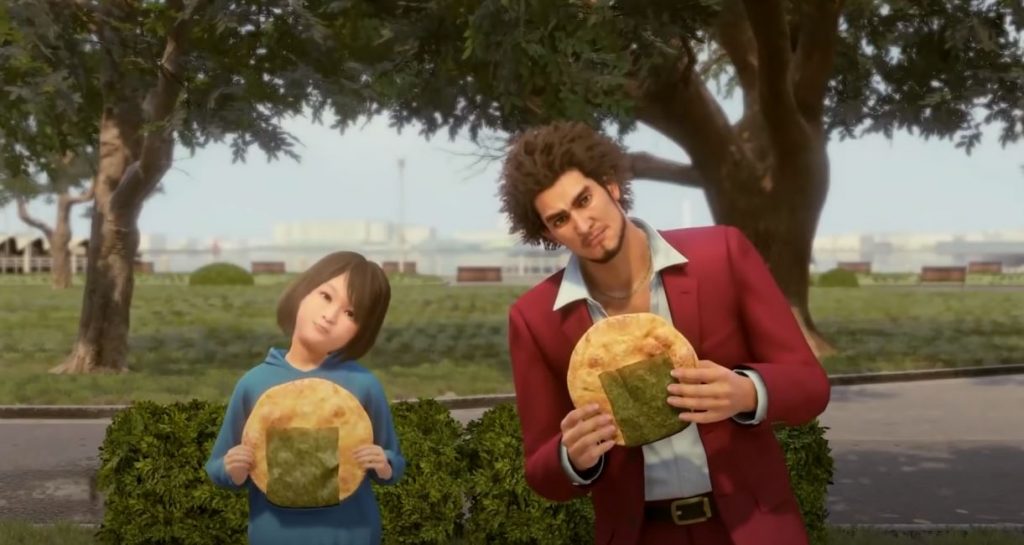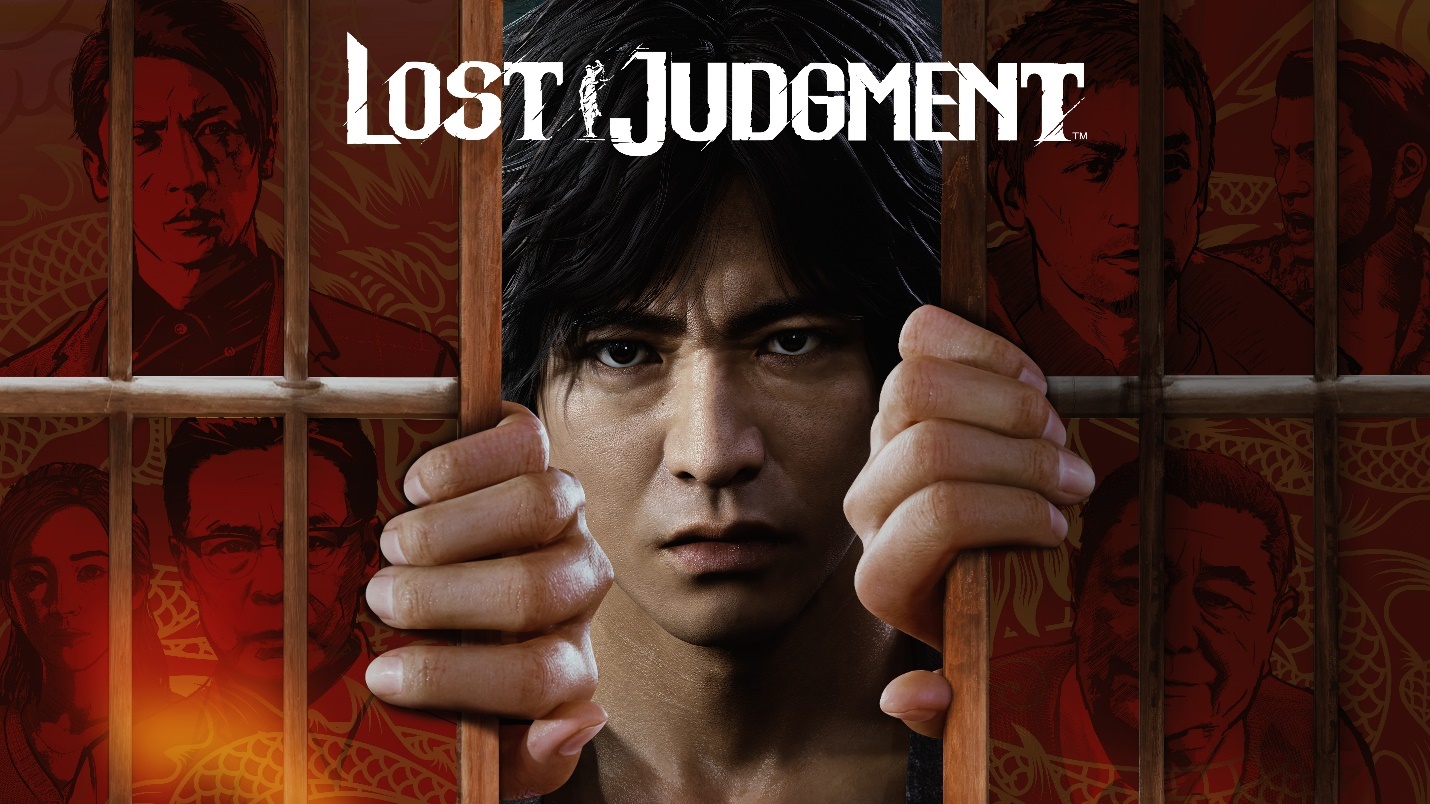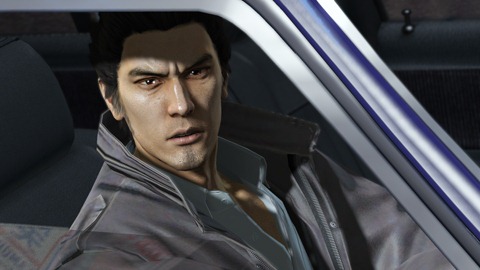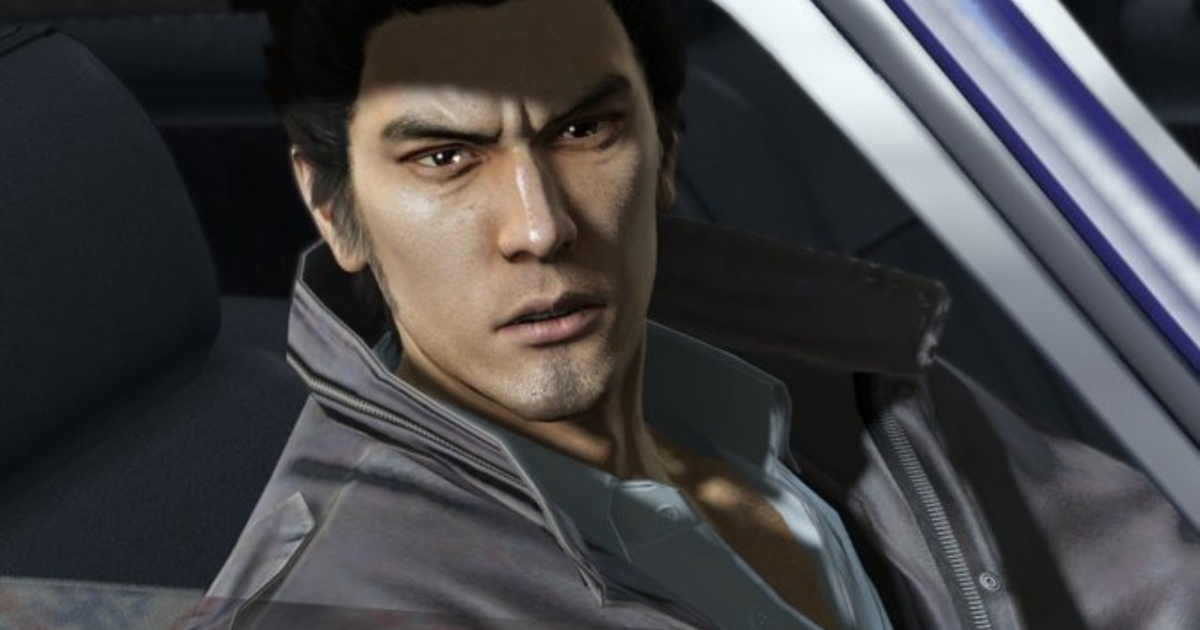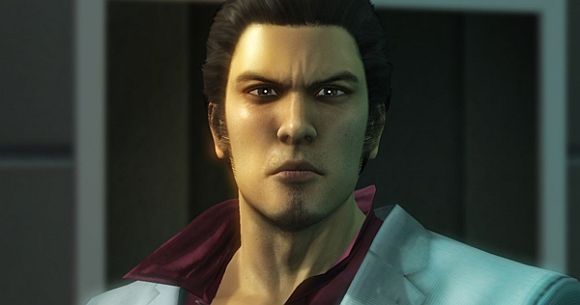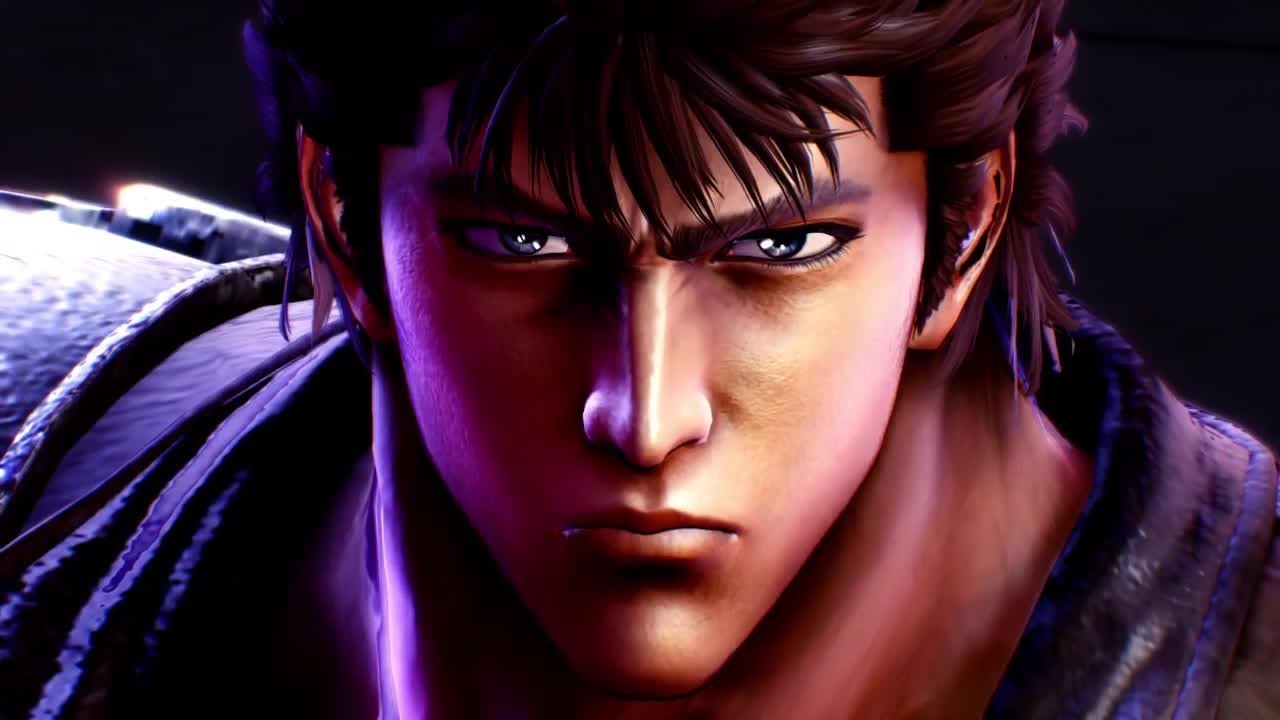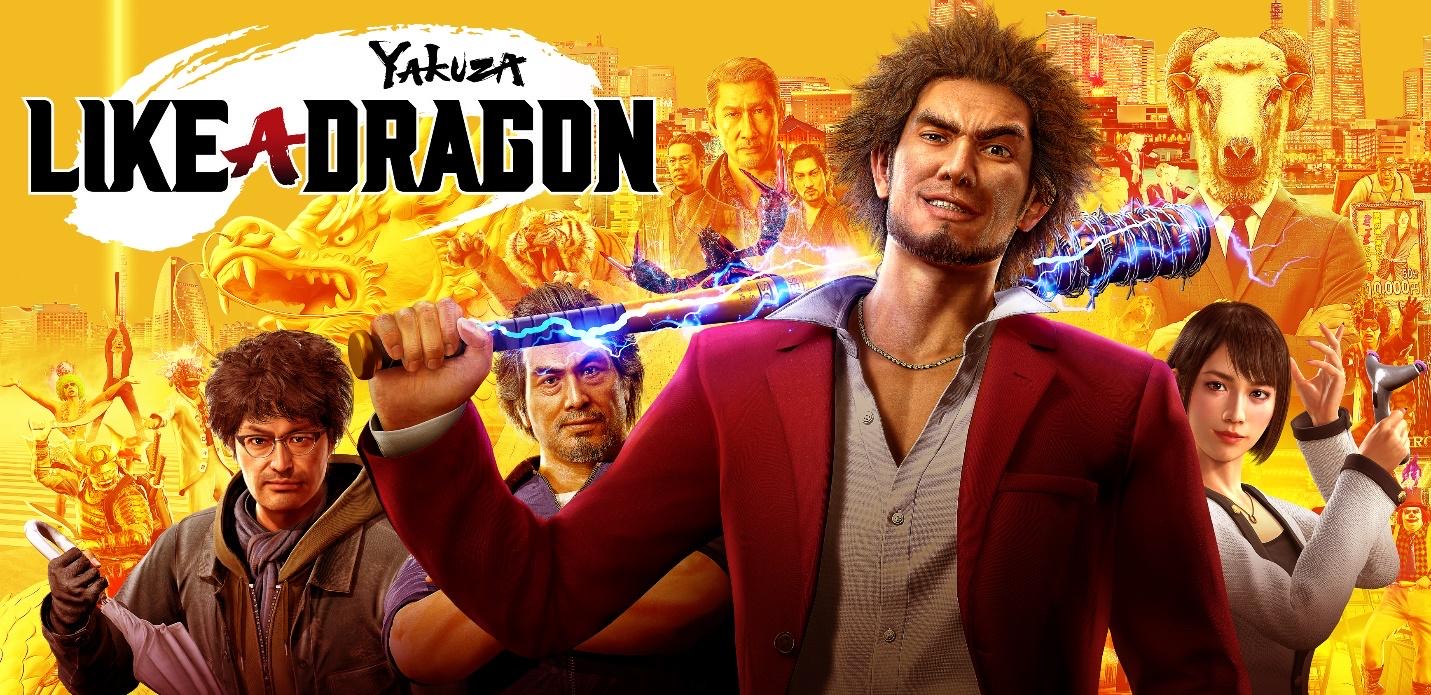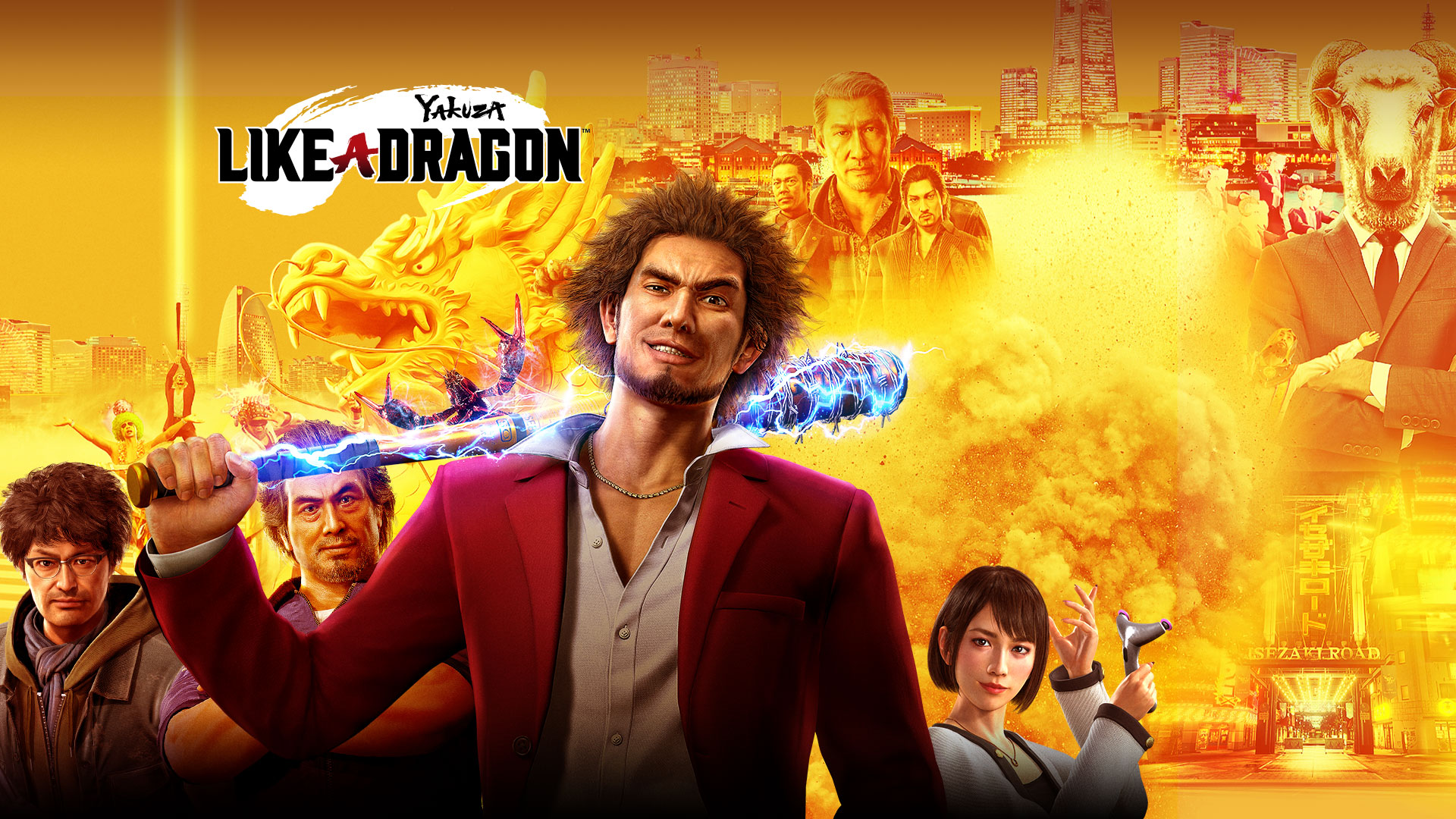
You have to hand it to Ryu Ga Gotoku Studio at Sega – they aren’t afraid to experiment. Over the past two decades, the Yakuza series has become a runaway success and one of Sega’s biggest franchises, built on the back of a well-loved ultra-detailed open-world, filled with missions and a tonne of brawler-gameplay. However, we have seen variations from this formula – 2012’s Yakuza Dead Souls introduced a non-canon zombie apocalypse, 2018’s Fist of the North Star: Lost Paradise tried applying the gameplay style to the venerable Japanese property, and 2019’s Judgment used the same map to tell an entirely original and unique story (and yes, shut up, I know in Japan there have been further spinoffs as well).
But now, the main series itself is transforming, as Yakuza: Like a Dragon eschews the brawler formula to become a full JRPG, with turn-based combat, a party system, equippable gear; the works. It’s a risk, but there’s also a confidence to the decision that’s exciting, especially since it allows the team to enhance many of the most-loved aspects of the franchise. There’s a new hero, a new story and a new future ahead for Yakuza, and Like a Dragon is a bold new take on an incredible series.
Ichiban Kasuga is the new replacement for longtime series’ protagonist, Kazuma Kiryu, but while his story shares similarities, he’s no stand-in. Brash, kind, confident and far less serious than Kiryu, Kasuga falls into the Yakuza at a young age, following a kindly father figure in an unimportant two-bit family. Kasuga is only all too eager to accept a request to serve a long jail sentence in place of another more important member of the family, but after serving 18 years in jail, he emerges to find himself not only banished by his now mega-important father figure, but treated as an enemy by his former family. Homeless, jobless and broke, Kasuga has to rise from the very bottom of Japanese society to find the truth behind the Yakuza’s shenanigans, his missing 18 years, and his place in an unfamiliar world.
Longtime Yakuza fans will know things are not as simple as I’ve outlined above. The world of Yakuza has its own sense of humour. It’s wacky. It’s tonally all over the place. You’ll bounce from a grounded look at a tense yakuza meeting, to a sci-fi super serum that can cure paralysis, to a Yakuza family clad in nappies fighting you for milk formula. The game frequently bounces between scenarios like this – and even more. But, what I wasn’t expecting was such a sympathetic and earnest (by Yakuza standards) look at the fringes of Japanese society. If Yakuza 0 was a celebration of the wealth and excess of the 80’s, with millions of yen constantly pouring into your pockets, Yakuza: Like a Dragon is its complete antithesis – a hard look at the struggle many who fall out of society face simply trying to live. Kasuga gets a hard education about life on the streets, illegal immigrants making ends meet by working in brothels, and even the daily struggle of working menial gig to gig from a job agency. It’s as sensitive and mature as it is silly and off-colour, which is very, very Yakuza.
It’s all tied together with a crew of supremely likable characters, from Kasuga himself to his initial core party of middle-aged dropouts, to the variety of other party members and characters he meets along the journey as well. The English dub of the game is surprisingly pretty good too – featuring great actors like George Takei, Greg Chun and Kaiji Tang – so if you’re new to the series and not committed to the traditional Japanese experience, you’ll still get a well-translated and often hilarious script as well.
Yakuza: Like a Dragon acknowledges it’s a shameless JRPG spin on the franchise, and uses this fact to its advantage to justify the change in gameplay. Kasuga himself is a massive Dragon Quest nerd, so of course as he is your POV character into the world, he sees every battle as a turn-based RPG, complete with magic effects, transformations and spectacular summons. It’s a neat way to get all the spectacle and ridiculous excess a JRPG can bring into the Yakuza world without completely breaking what (little) canonical grounding there is to the universe. Combat is turn-based but reactive, rewarding timed button presses much like Paper Mario. It’s fun and fluid, and also allowing for some completely ridiculous attacks (not to spoil too much, but an early one literally involves throwing bird seed at an enemy and watching them get pecked to death by pigeons). Characters move around of their own accord, meaning timing an attack to hit a group of enemies is crucial, and can be frustrating if you just miss it (and make you wish for the days of Yakuza being a free roaming brawler), but what is gained in strategy and the feeling of victory when you finally break through an enemy’s defenses, is more than worth the trade off. It never tends to wear thin, in the way that some of the older Yakuza titles could.
Outside of combat, Kasuga and his crew have a host of attributes and jobs that can be leveled up, weapons that can be equipped and personality traits that can be improved. Yes, clearly the makers of Yakuza are fans of the Persona series as well, and allow you to improve Kasuga’s kindness, confidence and other attributes through decisions made in the storyline, as well as through the bonds he levels up with his compatriots, which can be triggered through special events found throughout the game’s world.
While traditional series’ location Kamurocho is present in Yakuza: Like a Dragon, its main new location is Isezaki Ijincho in Yokohama, a fairly sprawling map with plenty to explore – often gated by roaming mobs of higher-levelled opponents. While there is still quite a bit to do, it does sometimes feel a bit emptier than the detailed Kamurocho, and you particularly feel it in instances you’re running low on health and searching for a restaurant or cafe you can actually enter. On Xbox One X, it also feels fairly sparsely populated at times, with people and foliage popping in, and the frame-rate occasionally skipping below the normally constant 30.
Beyond the main campaign, there’s also a pretty huge amount of side-content you can explore, as is the case with all Yakuza games. There’s the requisite huge number of ‘substories’ which can be found around the game’s locations – short sidequests which involve some of the fruitier characters, but can also net you some decent gear for your party. There’s a ‘Sujidex’ you unlock from a legally-distinct Professor Oak figure, which is meant to be completed like a Pokedex as you find and battle all the ‘sujimon’ (or degenerate enemies) around the game. There’s a whole business side activity, there are ‘hero’ achievements, there’s kart racing, there’s guitar playing, Pac-Man style can collecting, darts, playable full versions of Virtua Fighter 2 and Virtua Fighter 5, and tons more. Something about the game being an RPG this time around also helps incentivise you to experience as much of the side content as possible, given you’ll always be trying to grind for better gear, more experience or more money. The whole game feels tied together in a much more cohesive way this time around, compared to previous entries where you could largely ignore everything outside the main story if you so chose (and therefore miss some of the best content).
So, the takeaway is this – Yakuza: Like a Dragon is a successful experiment. So successful that I think it should be the template for much of the series going forward. And, it’s also the perfect jumping on point for new fans, which is why it’s positioned so well as not only available on Xbox One, PC and PS4, but as a launch game for the Xbox Series X and S. But, even playing it on Xbox One X like I did, it feels like a killer next-gen evolution of Yakuza that fans will appreciate and newcomers will fall in love with. As long as Ryu Ga Gotoku Studio can keep things as fresh as they have in Like a Dragon, the series has plenty of life left in it yet.
- Translates the Yakuza franchise successfully into an entirely new genre and direction - Fun combat system - Charismatic, entertaining heroes and a traditionally bizarre Yakuza world to explore - A pretty engaging story that delves into the forgotten fringes of Japanese society - A huge amount to do
- Not every side activity is that engaging - While other locations are appreciated, nothing is as well-crafted as Kamurocho - Performance on Xbox One feels a little spotty

